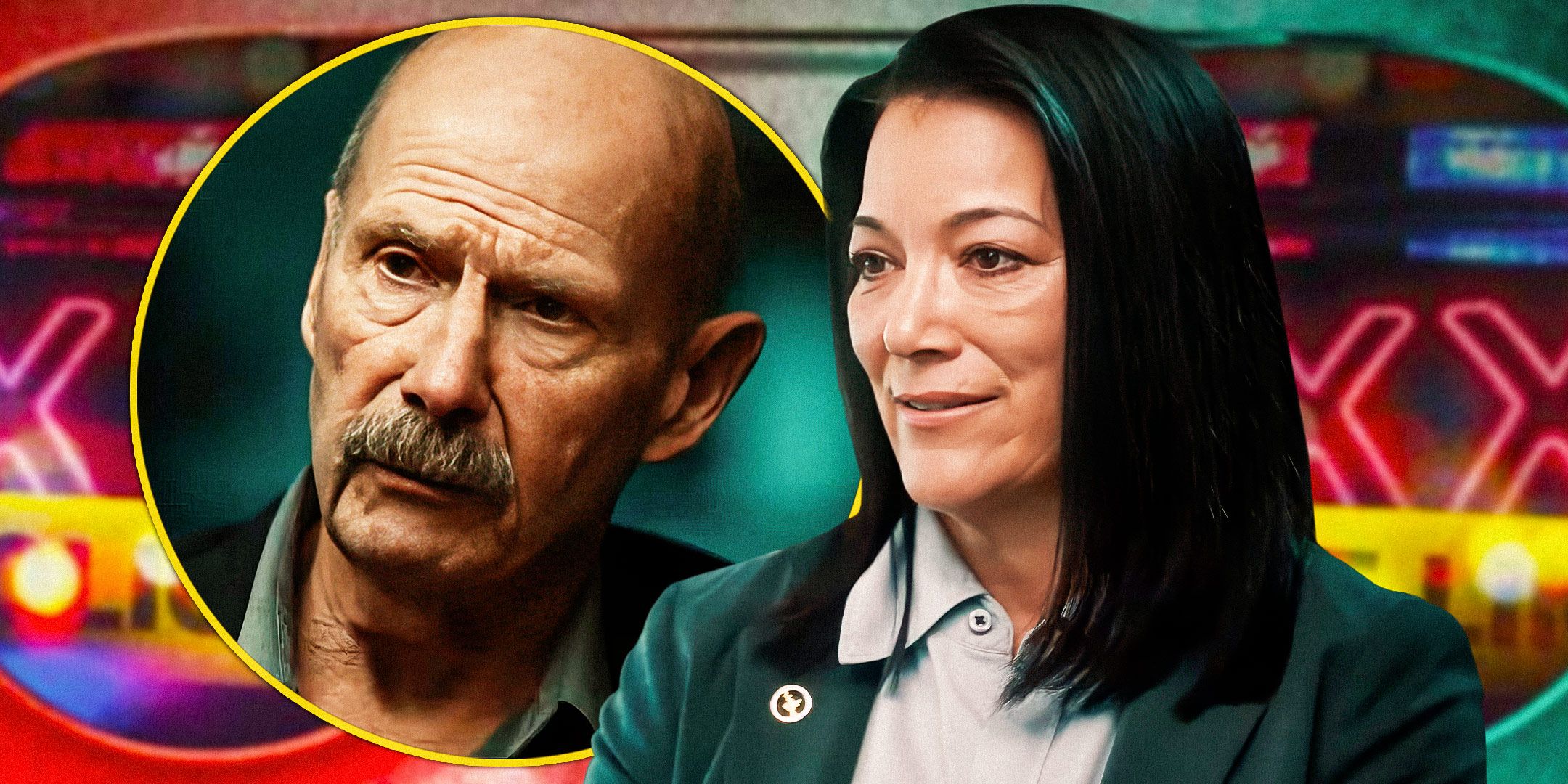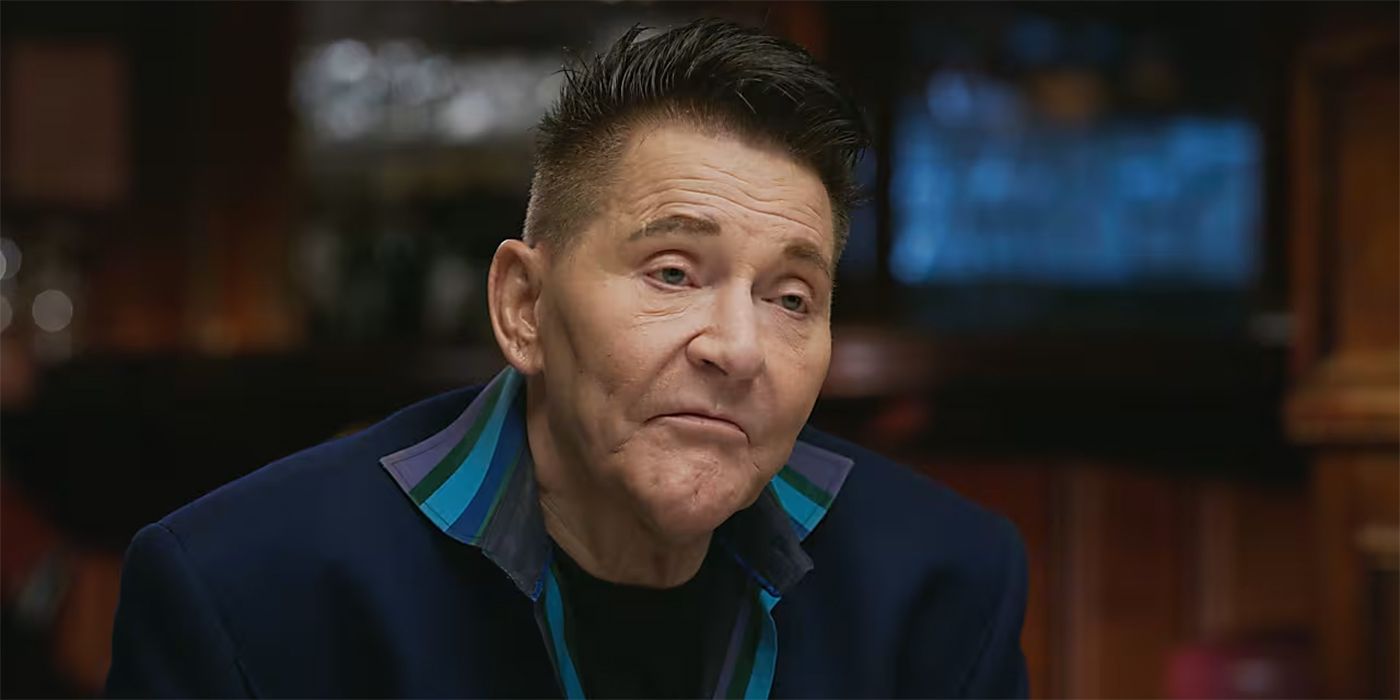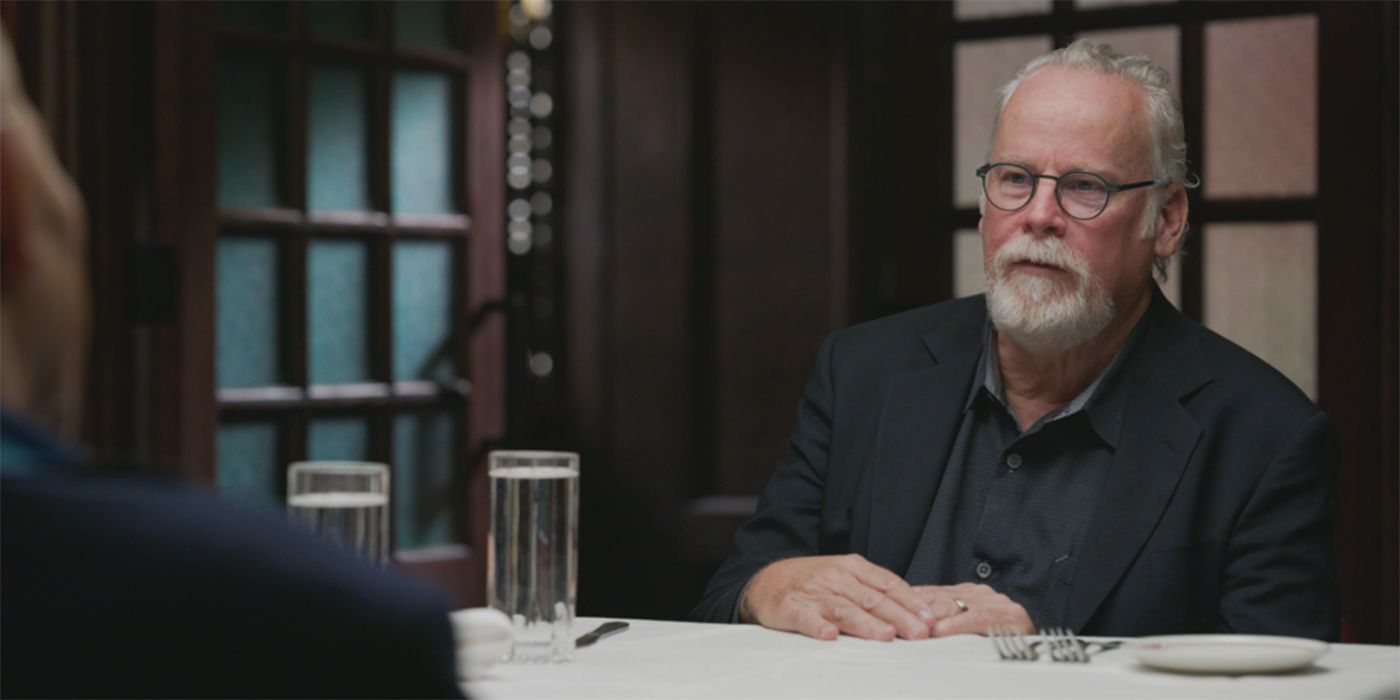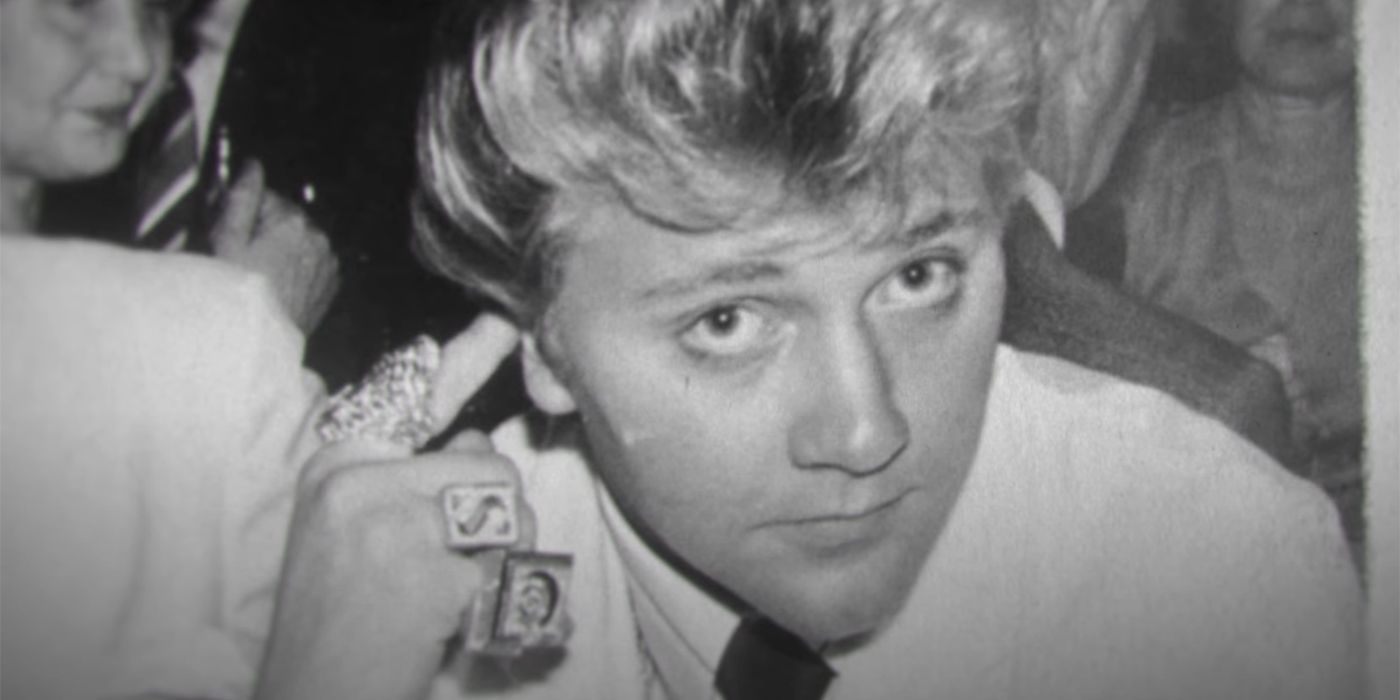
The latest episode of MGM+’s docuseries, The Wonderland Massacre and the Secret History of Hollywoodis now available to stream. In it, the best-selling crime novelist Michael Connelly (The Mind Behind Bosch And The Lincoln Advocate) goes back through the 1981 murders on Wonderland Avenue, a case that embodied the sex and drugs era of Hollywood and inspired boogie nights. The murders span several corners of history and pop culture, including famous porn star John Holmes, kingpins such as Pablo Escobar, mafiosos like Eddie Nash, and even Liberace and his boyfriend, Scott Thorson.
Connelly may be best known for his Harry Bosch novels, which spawned 10 television seasons worth of Bosch And Bosch: LegacyBut he also has a long and storied history as a journalist. He used his investigative skills to great effect when putting together his Audible original, The Wonderland Murders and the Secret History of HollywoodBut he also teamed up with documentary director Alison Ellwood to incorporate the archive footage and adapt the podcast format into a docuseries.
Related
Screen Rant Interviewed Ellwood about how she joined The Wonderland Massacre project, why Michael Connelly’s writing and journalism background is so important to the docuseries, and the challenges that came with exploring Scott Thorson’s myriad connections to the story.
How The Wonderland Massacre and The Secret History of Hollywood Went from Podcast to Docuseries
Elwood thought, “We have to visually see that. It’s going to be so much fun,” because Scott’s story is really wild.
Screen Rant: I was really fascinated by the docuseries. I knew about the Wonderland Massacre, but none of the details. How did you first get involved with the project?
Alison Ellwood: I was aware of the podcast, and they were finishing it when they brought me on. They started talking about a docuseries, and I loved working with Michael. I have access to the zooms he has with Scott [Thorson] for the podcast, so I got to see this sort of cat-and-mouse game with them that made me think, “Oh, my God. We have to visually see that. It’s going to be so fun,” because Scott’s story is Really wild.
Screen Rant: What was the biggest shift for you when pulling from the podcast format to the docuseries one?
Alison Ellwood: Thankfully, there were amazing archives from the time that we were able to draw on a lot. I just finished Laurel Canyon and San Francisco Sounds: A Place in Time, which showcased the bucolic Laurel Canyon scene with beautiful music. But in ’81, there was literally the negative image of that, so I wanted to kind of play with negative images and that noir feel.
I wanted Michael’s scene with the detectives to feel like he was meeting the detectives in the weird coffee shops and places of that era. We wanted it to have a real whimsical feel.
Screen Rant: How involved were you in deciding what stays or gets added? Did you discover more details when you go over it again?
Alison Ellwood: Yeah, we did a lot of interviews, and we pulled the stuff that made the most sense. The trickiest thing was figuring out how to structure it, but once we figured out the structure, it was pretty clear what was going to work.
There was just so much archive that we found, like when Scott was shot in Jacksonville, Florida. We had no idea that it was, and suddenly it pops up. It’s just amazing how much stuff popped up. I don’t want to give too much away, but you find out where the younger interviews with Scott came from in the fourth episode, and it’s simply amazing. When we first got these, I said, “We have to use them early on, but not reveal where they come from because it’s such a turning point in the story.” It was an amazing find, these two interviews.
How Michael Connelly’s Journalism Days and Detective Fiction Affected the Wonderland Massacre
“He said the story would make a very bad fiction novel.”
Screen Rant: Michael obviously has a lot of personal connections in the world, being an investigative journalist, but how did your interest in this type of docuseries first arise?
Alison Ellwood: True crime isn’t really my genre, honestly, but I was interested in it because it was an area that had changed so much because of the cultural and social changes. It was because of cocaine, really, and then finally crack. It just became such a dark story, so that was an intriguing part of it to me.
Also, I’m a huge fan of Michael Connolly. I’m a fan of his writing and his series, so it was just a no-brainer that I would want to work with Michael.
Screen Rant: Obviously, Michael’s background makes his fiction writing stand out, but how do you feel it helped shape the direction of an investigative story like this?
Alison Ellwood: Michael gets to play the detective on camera here. He does a lot of research in his books, and he has contacts, but what was strange is that he said that the story would make a very bad fiction novel. It would be just too unbelievable. There are just so many twists and turns that he said, “My editor would think this is crazy, nobody would buy this.”
Scott Thorson has always been at the heart of the Wonderland Massacre story
“The trickiest thing was figuring out where to introduce Scott.”
creen Rant: Did Scott’s recent passing recontextualize anything for you? I know it’s all been done at this point, but is there anything more that you hope people really take away from his story?
Alison Ellwood: I think the whole story is a cautionary tale about addiction. If it was not addicted to drugs, Scott Thorson, John Holmes and so many other people and celebrities would not be tripped up in this story. The drugs that these artists used to create music were mind-expanding drugs, and when cocaine and crack came on the scene, these drugs were designed to addict people. That was the goal, and it’s just such a dark story.
Screen Rant: It’s also one that holds fascination because no one was actually responsible for the actual murders. I know it’s a small amount of justice served, but there’s a really interesting discussion in episode 4 about whether the murders can ever be fully solved. What is your opinion on this?
Alison Ellwood: By all accounts, the detectives and everyone who investigated the case still feel that there is at least one person, if not two people, who participated in the murder. It would be a matter for someone to come forward and say “I know the news” and be able to confirm it. But so many of the people involved in the crime are dead now.
All the detectives, thankfully, are still around, but it would take someone coming forward to say they have indisputable evidence that could prove someone did it. I don’t know that anyone does, but there were people who were too afraid to talk to us. They wouldn’t be part of the series or the podcast because of their fear of people still out there.
Screen Rant: What is the method you used when contacting people? What are some of the most interesting conversations you’ve had about the docuseries?
Alison Ellwood: As a journalist, Michael had relationships with the cops back in the day, so he would reach out to them and then they would give us names of other people. I can’t take the names because they refused to go any further, but some of the detectives gave us names of other people they thought we should talk to. Some were not ready to talk, but basically everyone who was ready to talk, we got in the film. Of course, it’s largely told from Scott’s perspective after the first episode, once he’s introduced.
Screen Rant: Was that always the case from the beginning, or were there other angles you looked to tackle?
Alison Ellwood: No, we knew it was going to be through Scott’s lens because he’s connected in so many ways to so many angles of the story. When you find out in episode 3 that he was behind the crack epidemic, it’s like, “What?!” It’s just crazy. We always knew we wanted to do it through Scott’s point of view or perspective, because he was so entangled with the story, but the trickiest thing was figuring out where to introduce Scott.
At one point, we didn’t even introduce him until halfway through the second episode, and I was like, “No way. We have to introduce him as the cliffhanger out of episode 1.” This was the most difficult thing to find.
Alison Ellwood and Michael Connelly plan to continue working together
Screen Rant: Finally, what’s next for you? Is there another story you’re already looking to dive into?
Alison Ellwood: Michael and I hope to do another crime story together, with Jen Casey and Nick Gilhool also as producers, so we’ve got that. We’re developing that now. I also personally finished a documentary feature about the Gang Culture Club, so I’m kind of stuck in the eighties. yes,
Screen Rant: It is a period that holds a fascination for society even to this day. What do you think it is about this decade that keeps us invested?
Alison Ellwood: I don’t know. It’s just the indulgence and excess and drugs. But the 80s weren’t my favorite decade to live through, that’s for sure. Not to mention all the bad hair!
Read our other documentary interviews here:
- Figure
-
Michael Connelly
- character(s)
-
himself
- Release date
-
September 8, 2024


